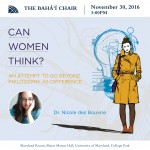A gleaning of some of the insights shared during the talks during the conference on Children and Youth in an Interconnected World, presenting a broad range of distinguished speakers, all talking about the role of children and youth in this fast-changing world.
Follow the latest news on the conference through #LOTLUMD at Twitter!
Modern Childhoods: Adjustment, Variety, and Stress
Professor Peter N. Stearns from George Msaon University talks about the modern patterns that influence the experience and role of children in society. According to him, the four basic modern changes are the following: first the transition from children as a source of labor towards children as students, with the primary obligation to learn. Secondly, the reduced birth rates. Thirdly, the reduction in children’s death rates. And the fourth change, although all these shifts are interconnected, government interest in children, whereas before responsibility for children was left to parents and educators. Continue reading

